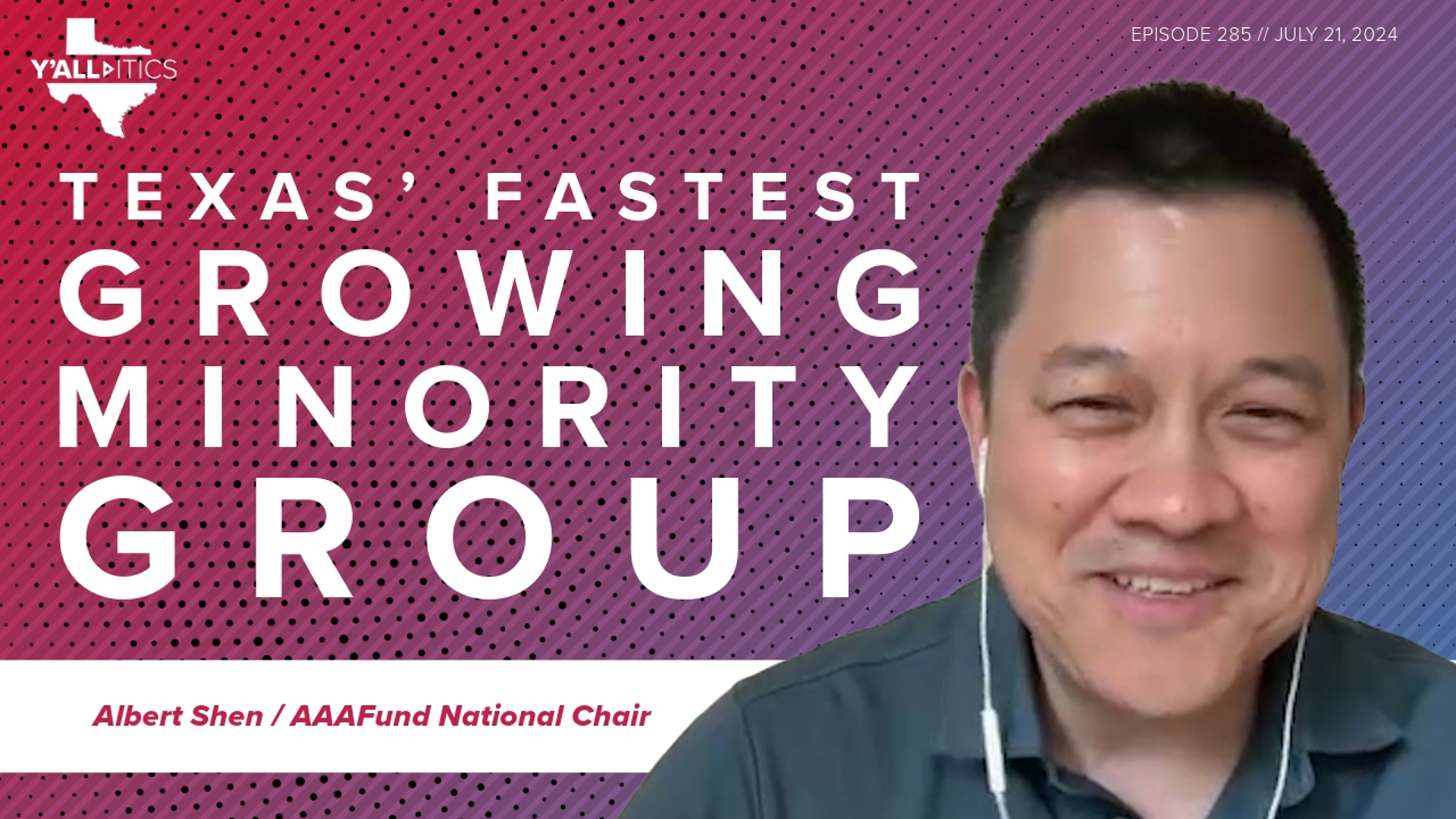DALLAS — When it comes to politics, raw numbers can often translate into raw political power.
So, what will it take to get politicians to pay more attention to the fastest growing group in Texas?
“There’s no silver bullet to that,” Albert Shen told us on Y’all-itics.
The number of Asian Texans jumped 5.5% from 2022 to 2023.
And Asian-Americans have been the fastest-growing group of eligible voters in the U.S. since 2020, jumping by a whopping 15%, which is exponentially faster than the 3% growth rate for all eligible voters.
Albert Shen is the National Chair of the Asian American Action Fund (AAAFund), a political action committee focused on getting Asian-Americans elected to Congress.
Shen says there are national efforts underway to highlight and amplify the growing influence of Asian American voters.
That includes organizations coming to Texas to help educate state and local politicians.
“And they provide the data that this is a serious voting bloc. It’s an economic bloc. Not only is their vote influential, but also their political giving in terms of a lot of them have the financial resources to be able to give,” Shen explained.
Watch the full episode:
Shen also says that in North Texas, for instance, there is a large number Asian-Americans in the corporate sector looking to learn more about the political process.
That, in turn, would likely help voter turnout, which Shen says is notoriously low among the group.
And politicians won’t reach out unless they know those voters will show up at the polls
Shen also tells us the diversity within the group can also make it more difficult for political outreach.
According to the Asian Pacific Institute, around 50 ethnic groups and more than 100 languages are represented from East and Southeast Asia, the Pacific Islands and the Indian subcontinent.
And the organization Every Texan, with a stated goal of strengthening public policy to expand opportunity and equity for all Texans, says the largest estimated Asian populations in our state are:
- Asian Indian
- Vietnamese
- Chinese
- Filipino
- Korean
- Pakistani Texans
“It’s actually a very complex scenario across all of them,” Shen said.
That doesn’t even take into account generational divides which often split various groups.
But the makeup and diversity of a politician’s staff can make a huge difference as well
“If some of the staff, the legislative staff or the political staff, don’t have those community connections, they really don’t know who the influencers are in those communities, so they don’t know how to reach them,” relayed Shen.
Shen also discusses how the state’s voter registration system, as well as the sheer size of Texas, are also hurdles making it more difficult to reach this group in the Lone Star State. And the AAAFund National Chair discusses where this outreach effort is working and where Asian Americans have moved the needle in close elections. Listen to the entire episode to find out more. Cheers!

